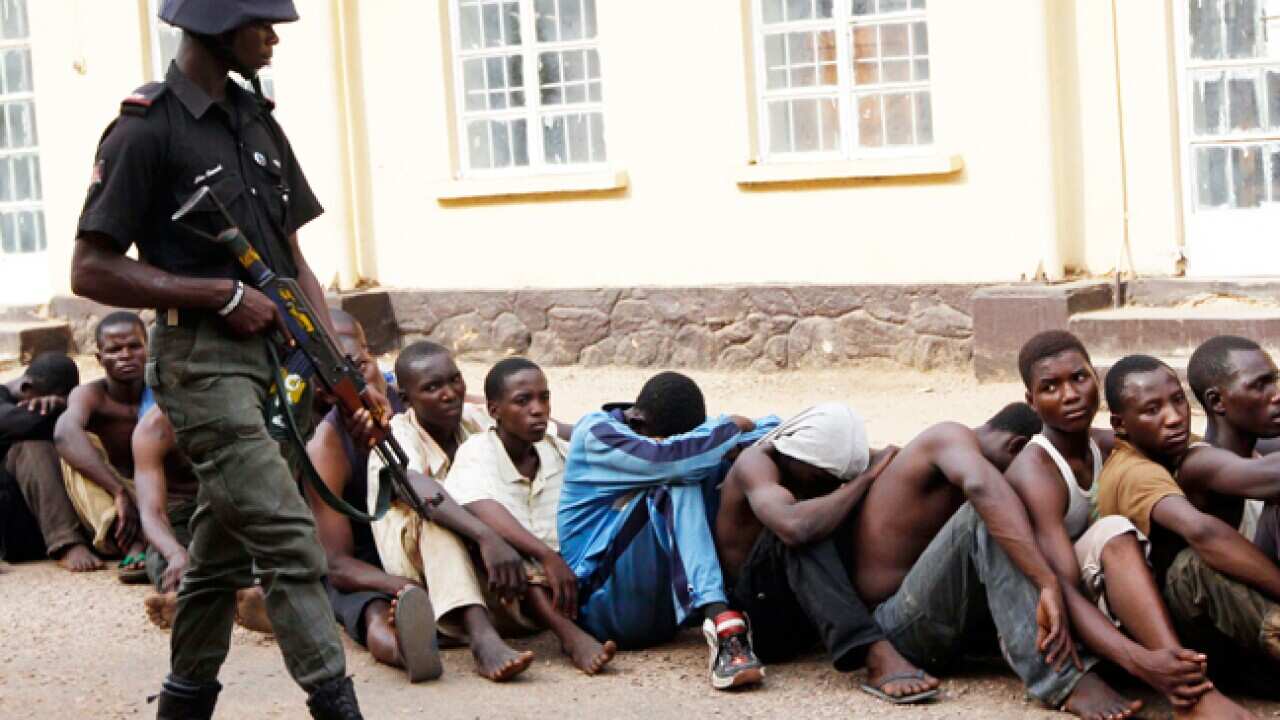The explosion of unrest that followed Nigeria's presidential election has left more than 500 people dead, a local rights group said, as fears mounted over upcoming governorship ballots.
Authorities have declined to confirm any death toll figures fearing reprisal attacks, though the Red Cross has spoken of many killed and says some 74,000 were displaced.
"The updated figure is about 516," said Shehu Sani, head of the Civil Rights Congress organisation based in the northern state of Kaduna.
He said most of the deaths counted occurred in southern areas of Kaduna state. The organisation gathers the numbers through its coordinators on the ground, Sani said.
"It can be a lot more," he said. "We are still getting the compilings."
The violence erupted over President Goodluck Jonathan's election win over his northern rival Muhammadu Buhari in April 16 polls.
Rioting broke out in the country's mainly Muslim and impoverished north over the election that saw Jonathan, a southern Christian, defeat Buhari with 57 percent of the vote compared to the northerner's 31 percent.
It quickly spread across the region, leading to mobs roaming the streets with machetes and sticks, dragging people from cars and burning victims' homes and shops.
Churches were also set alight, and Muslims were targeted in revenge attacks. A number of communities in southern Kaduna state are Christian-dominated, and Muslims have accused them of instigating the violence in those areas.
Analysts say the riots had more to do with poverty and economic marginalisation in the north than religion.
Many in the north had turned their hopes to Buhari, an ex-military ruler known for his "war against indiscipline" during his time in power in the 1980s.
Nigeria remains on edge following the unrest, particularly ahead of governorship elections on Tuesday in most of Nigeria's 36 states.
Conflict-torn Nigeria celebrates Easter
In the main northern city of Kano on Sunday, some attended Easter mass at military and police barracks where they have taken refuge, while others went to their regular churches.
An overflowing crowd sought to attend the mass at one police barracks, many standing outside and listening to the service through a loudspeaker.
The sandy ground where they have been sleeping was not far away, with clothes and cooking materials drying in the sun.
"I've been here with my family since Monday," said Eyo Anthony, a 41-year-old aluminum vendor.
"Although it's been calm in the past two days, I don't intend to go back to my house ... until after the governors' elections. I know how I managed to escape with my family and I don't want to relive the same experience."
He said he, his wife and two children fled on Monday when rioters arrived in the neighbourhood and began burning shops.
In the tense central city of Jos on Sunday, Christians attended church but were screened with metal detectors on entry.
The ruling party is projected to lose governorships in a number of states, raising concerns that desperate politicians may attempt to rig in certain areas.
Allegations of rigging are believed to have set off some of the initial riots following the presidential election.
Some analysts say the upcoming elections may hold the most risk for violence because of the large budgets and patronage networks governors control.
Nigeria's enormous effort to hold credible elections this year has made it more difficult for politicians to commit electoral fraud.
The presidential vote was hailed by observers as a huge step forward in Africa's largest oil producer, which is seeking to overcome a history of deeply flawed ballots, though they have noted that serious problems remain.
Buhari has challenged the results but has disassociated himself from the violence. Many have criticised him for not publicly coming out more strongly against the rioting in the days after the vote.

